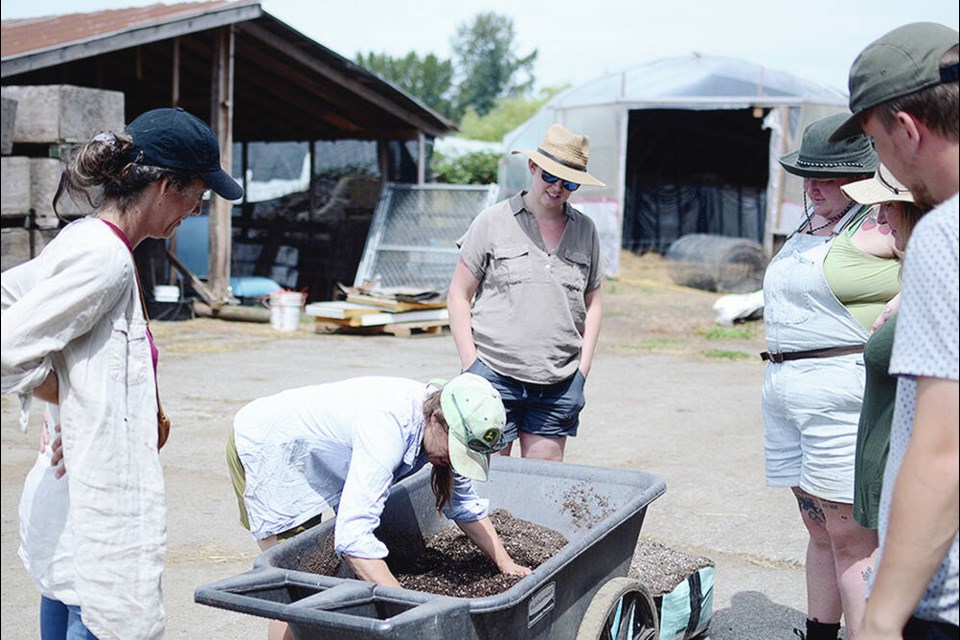Companies struggling to hire employees in industries such as construction salvage, meat processing and industrial sewing in central and northern Vancouver Island might soon see more qualified applicants thanks to a number of no-cost training programs administered by North Island College.
The college is coordinating just over $1 million in funds from the B.C. government given to municipalities, businesses and First Nations to provide free training for those looking to work in industries that are facing labour shortages.
This month, North Island College, Synergy Foundation, a Victoria-based non-profit, and the City of Port Alberni received about $229,000 to provide no-cost training for 12 people in salvage and deconstruction on the soon-to-be-redeveloped Somass Lands.
In a statement, Port Alberni Mayor Sharie Minions called the program a win-win for local students and the city. “A big part of our vision is to ensure as much of the leftover material on site is either recycled or reused into new, useful products.”
The college said last week that it had received $802,000 to support six no-cost, short-term training programs in Port Alberni, the Comox Valley, and Campbell River this school year through B.C.’s Community Workforce Response Grant. Five of those programs have already been completed.
The courses are administered by North Island College and taught by veterans in their field.
Dave Semmelink of Lentelus Farms will be teaching two courses on meat processing in Port Alberni and Campbell River this spring through the grant. “We’re just desperate for people in that industry.”
Semmelink is keen on bringing smaller-scale abattoirs and meat-processing facilities back to Vancouver Island. “We can have localized meat production if we want. We don’t all have to eat mass-produced, factory-farmed meat.”
Last year, he taught a no-fee course on regenerative farming in partnership with North Island College, Vancouver Island University and the Young Agrarians group.
Taylore Darnel, a chef at the Courtenay-based LUSH Valley Food Action Society, taught a 10-week intensive program on food prep and kitchen training that wrapped up in November.
The program, which focused primarily on preparing people to work in food trucks, was a partnership between North Island College and the North Vancouver Island Chefs Association.
Since many of her colleagues left the profession after the onset of the COVID-19 pandemic, programs like these help keep the Comox Valley’s vibrant food scene alive, she said.
Rob MacNeill, an industrial sewing instructor in Campbell River who also taught a North Island College program, said he ended up hiring some of the students he taught immediately after graduation.
“A lot of the older guys that were running these companies stopped training the next generation,” he said. “Now we’ve got this big empty void we’re trying to deal with.”
MacNeill, who learned how to sew working as a parachute rigger in the military, said the worker shortage was a self-inflicted industry problem that needs correction. “The problem in the industry is if you take the time to train somebody, a lot of times people just go and start their own business and actually become your competition.”
MacNeill’s two-month course teaches the basics on how to sew for the vehicle, aviation and marine industries, in addition to home upholstery.
The Monday-to-Wednesday schedule meant that students could still work and pay their bills while they were studying, he said. “It made it all that more accessible.”
Funding for the Community Workforce Response Grant program, intended to help address labour shortages in the province, comes from a $685-million Canada-B.C. Workforce Development Agreement signed in 2018.



